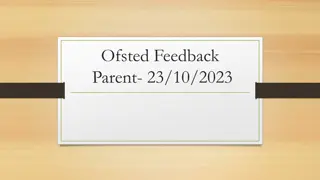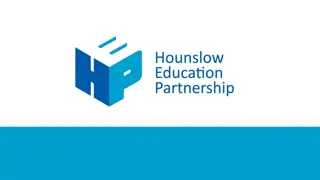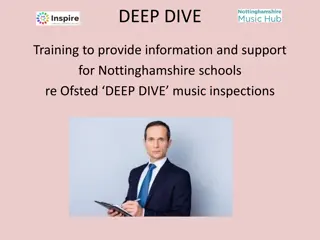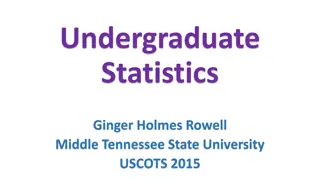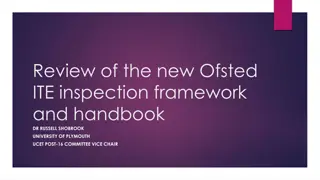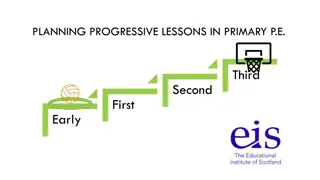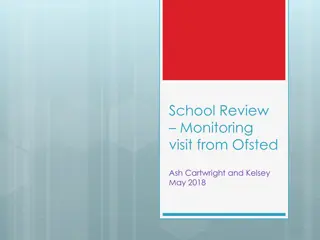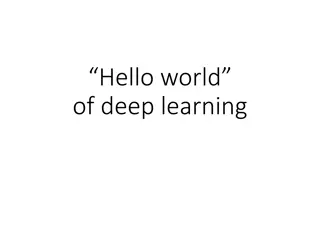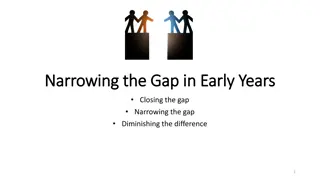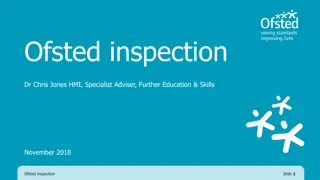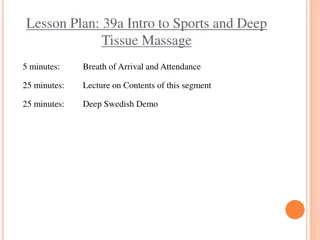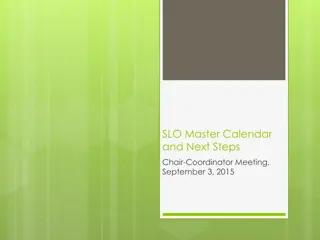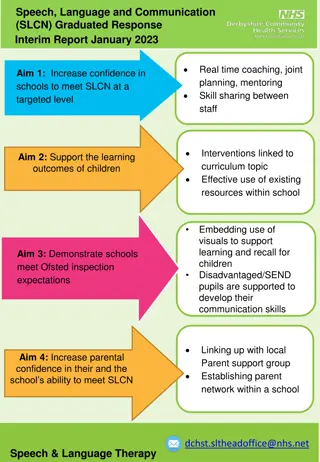Enhancing Physical Education: Insights from Ofsted PE Deep Dives
Explore key findings and insights from Ofsted PE reviews, deep dive processes, curriculum intent, pillars of progression, and types of knowledge in physical education. Uncover strategies to develop high-quality PE programs and enable all pupils to flourish.
Download Presentation

Please find below an Image/Link to download the presentation.
The content on the website is provided AS IS for your information and personal use only. It may not be sold, licensed, or shared on other websites without obtaining consent from the author.If you encounter any issues during the download, it is possible that the publisher has removed the file from their server.
You are allowed to download the files provided on this website for personal or commercial use, subject to the condition that they are used lawfully. All files are the property of their respective owners.
The content on the website is provided AS IS for your information and personal use only. It may not be sold, licensed, or shared on other websites without obtaining consent from the author.
E N D
Presentation Transcript
PE Deep Dives Matt Atkins 9thJune 2023
Aims/Learning Intentions Develop knowledge and understanding of the Ofsted Subject Review and Ofsted PE Deep Dives. Consider the relevance and relationship between the 3 I s in your school context. Identify next steps to move PE forwards in your setting.
Outline of Session Ofsted PE Review Overview of the Deep Dive Process The 3 I s Key Considerations Ofsted Myths Next Steps
Ofsted PE Review (March 2022)
Key findings from Ofsted PE Review 2022 PE for All Competence The aim of high-quality PE is not to create Elite Performers, but to enable all pupils to flourish. Fundamental Movement Skills Learning takes time- It s important that the curriculum provides enough opportunity for pupils to master intended knowledge. Content and Sequencing Content needs to be sequenced so that pupils can develop their schema by building on secure pre-requisite knowledge. Teaching Novices Most pupils should be treated as novices. Modelling Teachers should provide concrete examples when demonstrating what success looks like. Practice Pupils require lots of repetition to learn intended movements and should not move on too quickly. Feedback focus on what s going well and how to develop. Competition Competition can be useful but needs careful consideration.
Overview of the Deep Dive Process The Deep Dive includes the following elements: Discussion with Senior Leaders Discussion with PE Lead Visits to a sample of lessons Discussions with teachers Discussions with pupils Work scrutiny
Intent (Curriculum) Broad and Ambitious for ALL Meets the aims of the NC Considers Context Enables pupils to Know more, Remember more and Do more Quality content Well sequenced
Pillars of Progression MOTOR COMPETENCE RULES, TACTICS AND STRATEGIES HEALTHY PARTICIPATION
Types of Knowledge Declarative Knowledge Know what Procedural Knowledge Know how
Some questions on Intent Is your curriculum logical, sequenced and progressive? Is it broad and balanced or are you narrowing it for some reason? Is it inclusive? Is your curriculum owned and understood by all parties? Are additional staff used in the right way?
Implementation - how you deliver/provide that plan Competence of pupils Teacher Expertise Breadth, Depth & Ambition in action! Theme/Scheme/ Stimulus Subject Leadership Performance vs Learning
Implementation - Pedagogy and Assessment Pedagogy High Quality Instruction teaching styles, models. Purposeful Practice Feedback Assessment Fit for purpose Identify where pupils are at Inform planning and teaching to get pupils to intended destination
CONTENT SEQUENCING Are links made between knowledge? How? ASSESSMENT How are expected outcomes judged? How is this translated to all? CURRICULUM DESIGN Does leaning link? How? Why?
Some questions on implementation Do your teachers have good subject knowledge? Are your teachers confident to deliver high quality PE and adapt their teaching to pupils needs? How do you provide support for staff teaching outside their area of expertise? Is your teaching designed so that pupils build on previous learning? How do you monitor pupil progress?
Some questions on impact Does your curriculum develop pupils knowledge, skills and understanding of Motor Competence? Rules, Tactics and Strategies? Healthy Participation? Does your curriculum ensure that pupils know more, can do more and remember more? How do you track pupil progress? Does your curriculum prepare your pupils to lead healthy, active lives?
Key Considerations Context Justifications Breadth and Depth
Ofsted Myths Intent', 'implementation' and 'impact' won't be judged separately Ofsted doesn't specify how you should lay out curriculum or lesson planning, how long it should take or the detail it should go into You don't need to provide individual lesson plans There doesn't need to be a particular frequency or quantity of work in pupils' books Ofsted won't grade individual lessons, teachers, or books You'll be judged fairly for taking a radically different approach to the curriculum, as long as it's got appropriate coverage, content, structure and sequencing and you've implemented it effectively.




